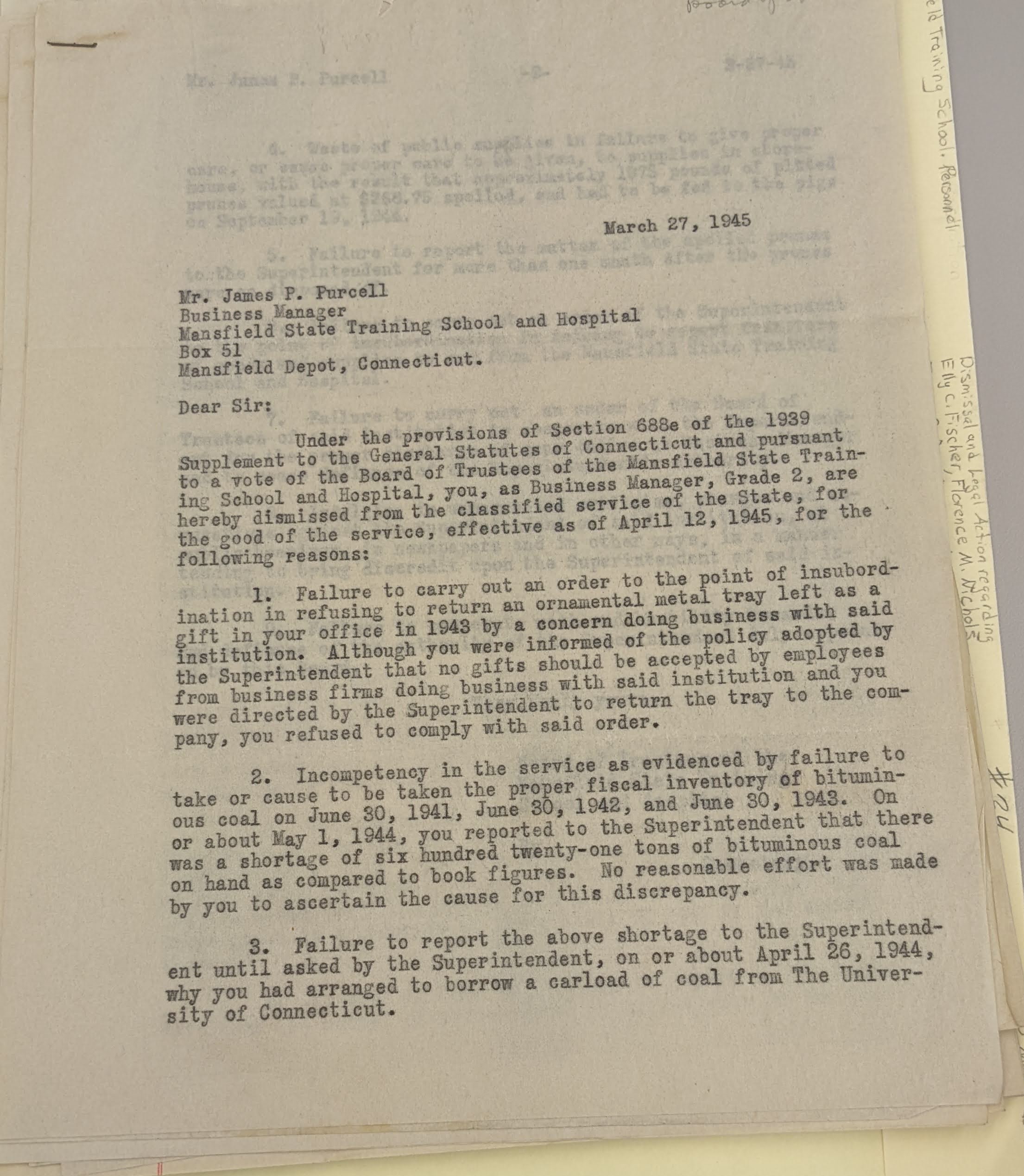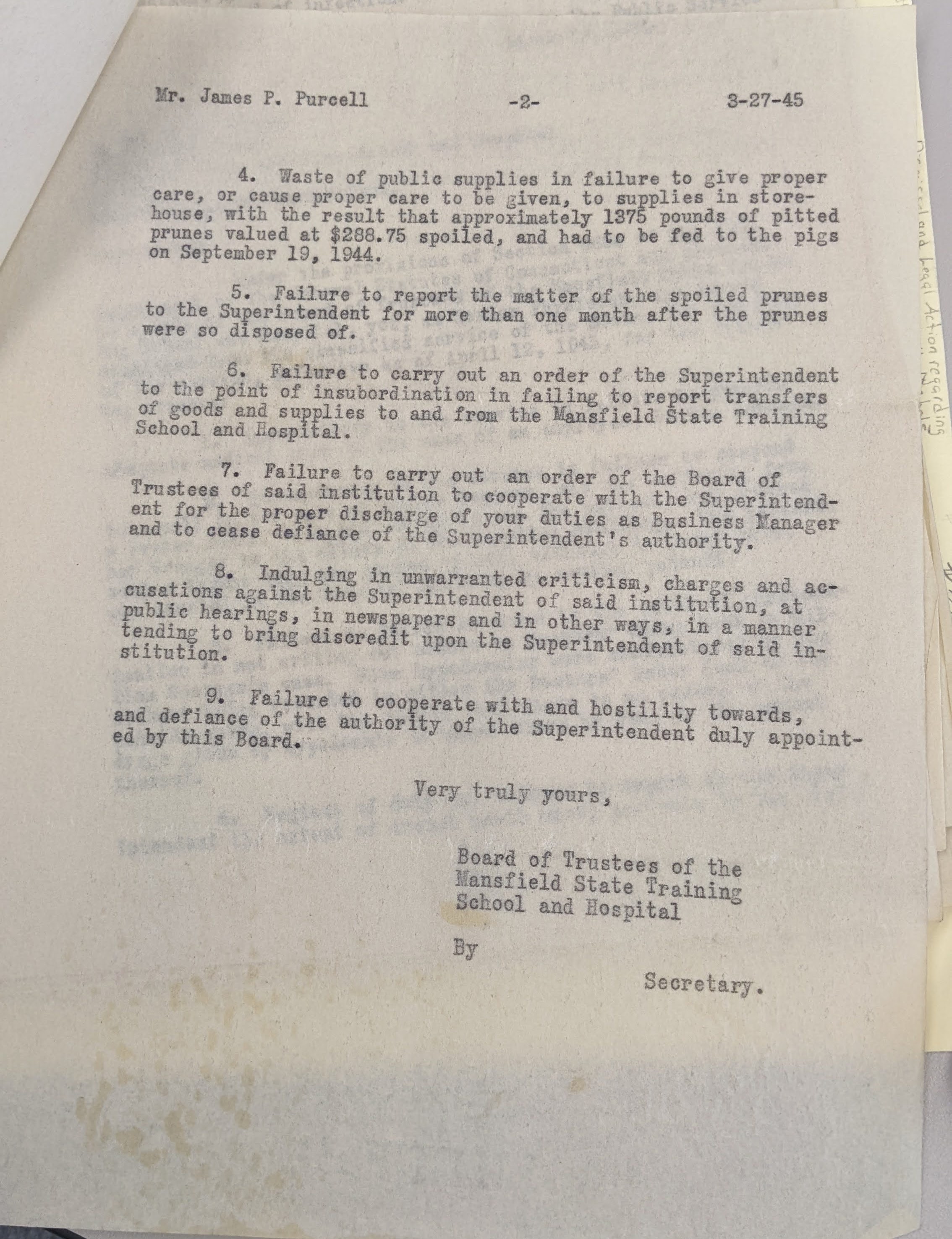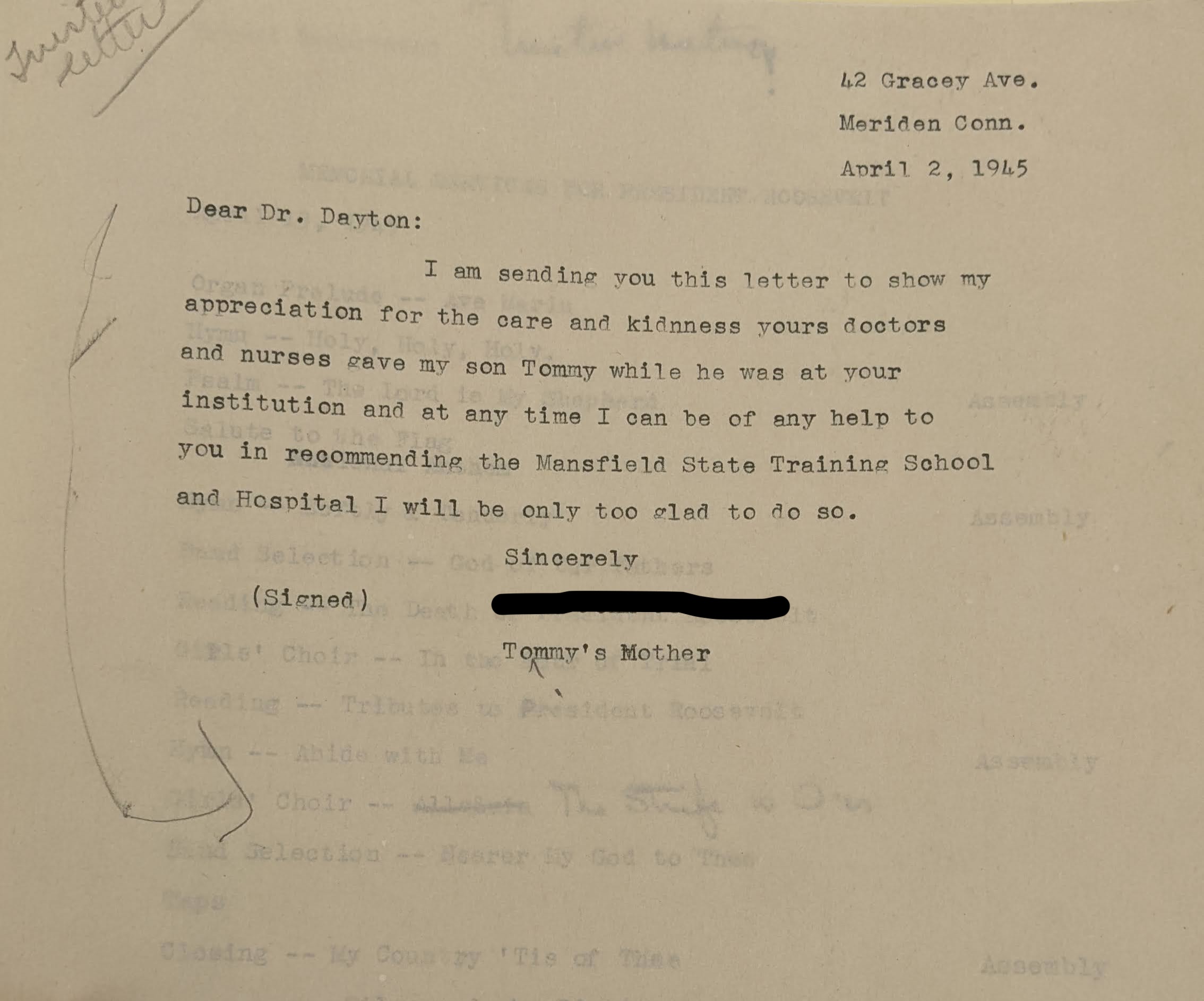By: Matt Iannantuoni
My fellow researchers, Jess and Brenda, had found in the archive inventory list a box titled “Dismissal and legal action regarding Elly C. Fischer, Florence M. Nichols, James P. Purcell, and Dr. Helen T Warner (1942-5.)” Knowing that I am eventually bound for Law School, they suggested I read through it as my entrance into this project. After reading through these folders I have found my problem with this type of archival work is that those doing the research are at once archeologists, storytellers and, ultimately, visitors peaking in on what was once someone’s career. The natural inclination is to put together a story from the documents which tends to be like putting together a puzzle without the picture on the box and with many missing pieces. As I dug through the minutes and court documents from the Personnel Appellate hearings for four employees of Mansfield Training Schools I was trying to find the through-line of the folder, I kept asking, what did these four major staff members do in the mid-forties?
My question had been answered by a slew of new questions when I came upon a stapled set of papers titled “Termination Letters” and the through-line immediately revealed itself, “Failure to cooperate with and hostility towards, and defiance of the authority of the Superintendent duly appointed by this board.” Each of these employees, an X-Ray Technician (Fischer,) the director of nursing (Nichols,) a business manager (Purcell,) and a Senior Physician (Warner) had all been fired, at the same time, for separate and often seemingly inconsequential missteps besides this one similarity- “defiance of the authority of the Superintendent.” Perhaps this common complaint is just a generalized, boilerplate umbrella phrase, however, the explicit mention of the Superintendent (Neil A. Dayton) seems to point away from this conclusion.
Each employee had a laundry list of missteps, such as the director of nursing being accused of “Neglect of duty and incompetency in failure to have resertilized for several months certain sterile goods held for routine or emergency use.” Or, in the case of the X-Ray technician, “Language and conduct towards personnel employed in said institution, leading to friction, dissension, and disturbance of the harmonious operation of the institution.” It’s impossible to say with any certainty how founded or unfounded these claims are, which is the “rub” of doing this kind of work, however, taken with what we know about the overwhelming code of silence which allowed so many cruelties to go on unabated, it seems that those accused may have spoken out against the institution, “broken the code” and were fired soon after.
Another “mask off” example of this is in the complaints levied against the business manager (Purcell) which, chief among the nine, is “Failure to carry out an order to the point of insubordination in refusing to return an ornamental metal tray left as a gift in your office in 1943 by a business concern doing business with said institution” and then hidden on the second page, at number 8 is “indulging in unwarranted criticisms, charges and accusations against the Superintendent of said institution, at public hearings, in newspapers and in other ways, in a manner tending to bring discredit upon the Superintendent of said institution.” Attempts to find records of the public hearings, newspapers and the ominously ambiguous “in other ways” proved futile, a moment in MTS history that is left open to interpretation.
As I dug through this box of files I kept finding different documents that did not seem connected to the termination of the staff members, for example, a few patient census files that counted the number of patients at MTS, a copy of an outdated Connecticut act concerning “Training School Recommitments and Transfers,” as well as a letter from the patient’s mother, thanking the Superintendent for the treatment her son received from doctors and nurses. I’m not sure how these relate to the mass termination of 1945, but I’m also not sure why they would be in this folder if they were not. More questions than answers on this first day of research.
Image 1 and 2: the termination letter of business manager James P. Purcell.
Image 3: Thank you note from Tommy’s Mother (name omitted for privacy.)


